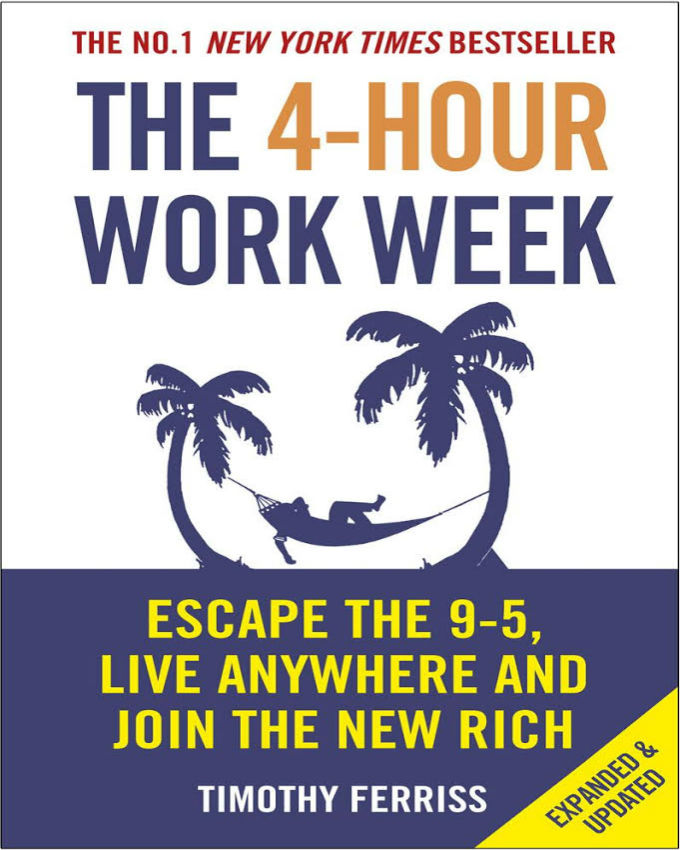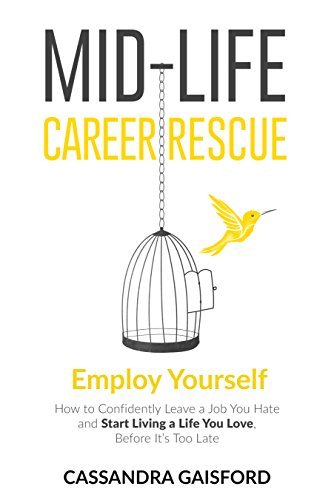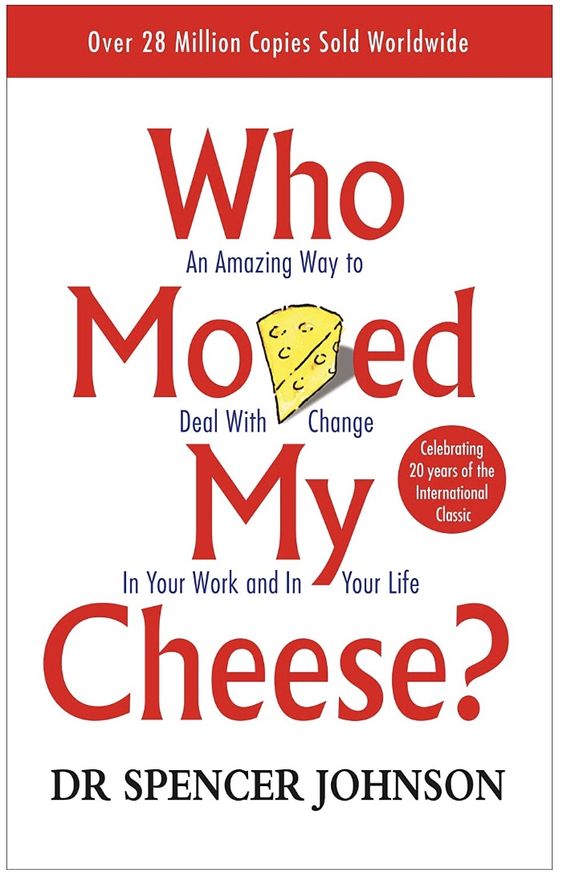The 4-Hour Workweek

We have grown knowing that we only have two life options regarding work. Either get an 9-5 job and work hard till retire or start a business and work about 80 or more hours a week. However, in “The 4-Hour Workweek” self-help book, Timothy Ferriss introduces an Option C-Lifestyle Design mostly embraced by the New Rich (NR). Instead of following the traditionally laid plan, the New Rich intentionally abandon the deferred life plan, creating their luxury lifestyles while at the same time enjoying the complete freedom that it allows. Below are the key concepts that Ferris proposes for becoming the New Rich.
Definition of the New Rich
Ferriss introduces the “New Rich” concept in the first section of the book. According to the author, the New Rich individuals value their time, wealth, and mobility and hence would never take a job that ties them from 9 am to 5 pm. From this chapter, we learn that true wealth can be measured by the amount an individual enjoys their freedom and experiences in a day. These people do not follow the masses but mostly define their values and goals aligning them with their desires.
Time Management
In this book, Ferriss also introduces the “lifestyle design” concept. The author says this concept involves people redesigning their lives and ensuring maximum enjoyment and liberty. Instead of focusing on many unimportant or less beneficial tasks, Ferris recommends focusing on the key important activities that offer great results.
Outsourcing and Automation
The book also examines outsourcing non-essential roles to virtual assistants or overseas workers. When individuals and companies delegate these repetitive or time-consuming roles, one frees more time to concentrate on higher-value tasks.
Mini-Retirements
Every time we think about retirement, the thought of resting and enjoying the fruits of our labour comes along. However, Ferris proposes mini-retirements where people take necessary and extended periods off work. In this case, the author proposes traveling to unknown destinations and experiencing new cultures rather than deferring enjoyment to the later stages of life after retirement.
The 80/20 Principle
While the 80/20 principle, also known as the Pareto, was previously introduced by Richard Koch, Ferris expounds on the idea. According to this principle, 80% of the results come from 20% of the inputs or causes. In this case, even small efforts and resources can yield huge results. According to Ferris, people should identify and focus on the 20% that contributes to the desired results while ignoring the 80% of efforts that have little impact. Some proposed activities include setting personal goals, time management, and self-improvement.
Income Generation
In this book, Ferris also explores various ways and approaches to generating income as well as creating a lifestyle that allows flexibility and freedom.The key concepts that Ferris linked with income generation include lifestyle design, outsourcing and automation, online business, and e-commerce, passive income, lifestyle cost optimization, and testing and validation. For example, in the lifestyle design concept, the authorexplains the importance of redesigning and aligning our lifestyle with income generation. Instead of pursuing the 9-5 jobs, we are encouraged to think outside the box and embrace alternatives, including working remotely.
Elimination of Fear and Excuses
Lastly, Ferriss challenges common fears, anxieties, and excuses that hinder us from pursuing and attaining our dreams. In this case, the author encourages us to take calculated risks, redefine our fears, and overcome self-imposed limitations.
Key Takeaways From The 4-Hour Workweek
- Have defined goals and priorities. In this case, Ferriss emphasizes the importance of clarifying your goals and priorities’ identification. He encourages us to imagine the ideal lifestyle we want and determine what it will take.
- Eliminate time-wasting tasks. According to Ferris, we should identify and eliminate time-consuming tasks that contribute to our goals in a small manner. In this case, the author proposes using the “80/20 principle,” where the focus is given to 20% of activities that yield 80% of the desired outcomes.
- Outsource and delegate. Doing all duties without delegation is sometimes not a good idea. In this case, Ferriss recommends outsourcing and task delegation, which frees up time and energy. Nowadays, people can outsource by hiring virtual assistants or freelancers to offload monotonous or non-essential work.
- Embrace digital nomadism. Ferris highly encourages the idea of becoming a digital nomad. Nowadays, digital nomads can work from anywhere, get paid well, and enjoy a flexible lifestyle. Ferris also talks about the approaches used four building a successful online business.
- Focus on productivity and efficiency. Ferriss proposes using tools and technologies to streamline work-related processes. Such ensures we minimize time wasting and especially on low-value activities.
- Embrace the “mini-retirement” mindset. Over the years, people have been working hard while waiting until the traditional retirement age to enjoy life. Ferriss refutes this idea and proposes taking regular breaks or “mini-retirements” during one’s working years. If we adopt a flexible work schedule and optimize productivity, we can enjoy longer periods of travel, leisure, and personal growth.
- Design your ideal lifestyle. Lastly, the book encourages us to define and pursue our ideal lifestyle enthusiastically. The author emphasizes the benefits of owning our time and designing a life that aligns with personal values, interests, and aspirations.





